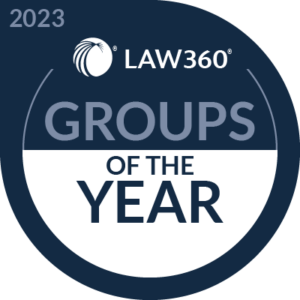Contact Seeger Weiss
If you have information regarding fraudulent activity or other wrongdoing against the government, you may be able to file a whistleblower claim on behalf of the government or disclose your information through one of many whistleblower programs. If the case is successful, you may be entitled to a portion of the money recovered by the government. To determine whether you may have a viable whistleblower claim, it’s important to contact an attorney who is familiar with the types of conduct that a whistleblower may expose, understands the applicable laws,and has the ability to navigate the whistleblower process, including the various procedural prerequisites.
Whistleblower laws are complex and nuanced. With extensive experience and proven success representing whistleblowers in qui tam actions, Seeger Weiss can help clients expose fraudulent activity and receive compensation for reporting the misconduct. Please fill out the free case evaluation form, and an experienced member of Seeger Weiss’s staff will contact you. Initial consultations are free of charge and do not create a legal relationship.
FAQ’s:
What is Qui Tam?
The term qui tam is derived from the Latin phrase “qui tam pro domino rete quam pro seipse,” which means “he who sues for the king as for himself.” Under common law a private citizen can sue on behalf of the government. If the case is successful the government will receive damages, and the person who brought the suit is entitled to some amount of compensation for their assistance, provided certain conditions are met. The purpose of qui tam actions is to encourage citizens to alert the government to wrongdoing.
Types of Illegal Conduct Whistleblowers Can Report
A whistleblower may uncover many different types of fraud committed against the government, including:
Health Care Industry Fraud – Often involves pharmaceutical companies, insurance companies, physicians or other healthcare providers,or drug wholesale companies. Medicare and Medicaid fraud are common subjects of whistleblower healthcare claims, with a wide variety of common schemes including violations of anti-kickback laws, “up-coding,” liability for substandard care, Stark law violations for engaging in prohibited self-referrals, and various fraud schemes related to the COVID-19 pandemic.
Tax Fraud – Every year, the IRS receives thousands of reports to their whistleblower programs. In addition, certain states have statewide whistleblower laws to report tax improprieties, like the New York 2010 whistleblower amendment to their tax code. These programs may vary,so it’s important that whistleblowers work with attorneys that know how to handle their cases of fraud.
DOD Fraud – Since military/defense contracts are so large, they are ripe for fraudulent activity such as overcharging or padding contracts and invoices, failure to perform mandatory testing, or providing inferior products as a substitute for those promised under a contract.
Financial Fraud – This type of fraud often involves mortgages and pension funds where individuals or companies falsify various information.
Securities and Exchange Commission (SEC) — Securities fraud is also a common type of financial fraud, and there are specific whistleblower laws that you need to be aware of. The SEC has a specific program that provides awards to relators who report a wide variety of financial fraud or other violations of securities laws.
Environmental Fraud – Whistleblowers are critical to uncovering environmental misconduct and ensuring companies properly remediate environmental damage. If a whistleblower reports conduct that violates environmental regulations and results in penalties under federal laws, they may be able to recover some portion of the damages. Separately, a company overcharging or failing to meet the specifications of environmental contracts may be held accountable under the False Claims Act of 1863.
Money Laundering Violations and Sanctions Evasion – The anti-money laundering whistleblower program enables whistleblowers to come forward anonymously with information in regard to money-laundering violations and violations of U.S. economic and trade sanctions, including with respect to the Russian Federation, Iran, North Korea, Cuba, Counter Narcotics Sanctions, and Venezuela-related sanctions.
Foreign Corrupt Practices Act (FCPA) – FCPA whistleblowers can come forward with informationthey have on a company or individual bribing foreign officials in an attempt to influence a decision or action affecting that company’s business.
Legal Basis for Claims
The False Claims Act of 1863, as amended over the years, is one of the most important laws for whistleblowers, because it allows a private citizen, known as a “relator,” having information regarding a false or fraudulent claim against the governmentto sue on behalf of the government and share in any recovery.
This law prohibits individuals and entities from submitting false claims to the government for payment from or avoiding payments to the government. In general, however, a wide array of conduct falls under the federal False Claims Act, which also contains protections for whistleblowers.
The law protects whistleblowers from retaliation for reporting government fraud along with many other federal laws providing more specific protection to those who report illegal conduct regarding industries such as airlines, banking and financial institutions, and myriad other business sectors. In addition, there are several state laws ensuring that whistleblowers are not subject to adverse action for coming forward.
Some claims are excluded under this act, such as tax claims under the Internal Revenue Code, but whistleblowers can bring federal tax claims under the IRS Tax Whistleblower Program, and state tax claims under certain state whistleblower laws, such as the New York State False Claims Act. As such, it’s important to work with a law firm that understands the common fraudulent schemes and the applicable law.













